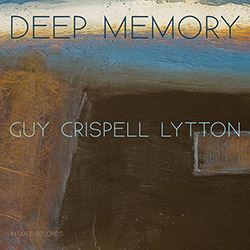
Inspired by Irish painter Hughie O' Donoghue, bassist and composer Barry Guy takes the same trio from his albums "Odyssey" and "Ithaka"--pianist Marilyn Crispell and drummer Paul Lytton--on an impressionist album of expressive and emotional playing, with lyrical and explosive peformances that reflect a haunting music showcasing each player's skills; stunning.
Out of Stock
Quantity in Basket: None
Log In to use our Wish List
Shipping Weight: 5.00 units
Sample The Album:
Barry Guy-bass
Marilyn Crispell-piano
Paul Lytton-drums
Click an artist name above to see in-stock items for that artist.
UPC: 7640120192730
Label: Intakt
Catalog ID: ITK273.2
Squidco Product Code: 24120
Format: CD
Condition: New
Released: 2016
Country: Switzerland
Packaging: Jewel Case
Recorded at Powerplay Studios, in Maur, Switzerland, May 21, 2015, by Reto Muggli.
"After the highly praised trio CDs, Odyssey and ITHAKA, the composer and bassist Barry Guy presents a new CD - Deep Memory - with the same trio members, pianist Marilyn Crispell and percussionist Paul Lytton. For his new compositions, Barry Guy was inspired by Irish painter Hughie O' Donoghue - all titles on Deep Memory courtesy of the Irish painter Hughie O' Donoghue's Berlin exhibition (2007) entitled "Last Poems". A music has emerged of a tense and lacerating beauty. Tonal painting contrasts with abstract reflection. Expressive moments stand next to elegant moods. Powerful improvisation goes up in lyrical intimacy. Barry Guy writes in the linernotes: "Beyond the titles of Hughie O' Donoghue's paintings, the viewer becomes aware that he has a deep love for the act of applying paint to a canvas - an emotional act with an historical perspective. His complex layering of paint gives us rich colours and surface textures in the manner of Titian. I hope it would not be too fanciful to say that the music of the trio in a similar way engages with the tradition of the medium whilst exploring new avenues of expression for the inquisitive listener."-Intakt
"Bassist Barry Guy took a key role in pianist Howard Riley's groundbreaking trio in the late 60s, early 70s. And while that early experience has in no way defined him, it means it perhaps comes as less of a surprise that he has increasingly turned to the format in the latter part of his career. One offs apart, the two enduring piano trio vehicles for the bassist are the Aurora Trio with Agusti Fernandez and Ramon Lopez, and the accomplished unit here with the American pianist Marilyn Crispell and drummer Paul Lytton. Deep Memory constitutes the fourth entry into their discography, maintaining the standard set by Odyssey (Intakt, 2002)Ithaca (Intakt, 2004), and Phases Of The Night (Intakt, 2008).
Guy of course is not only one of the world's pre-eminent bassists who has excelled in jazz, improv, contemporary classical and early music fields, but an acclaimed composer in the first three, with legendary ensembles such as the London Jazz Composers Orchestra, BGNO and latterly The Blue Shroud Band. As such he brings his exquisite touch as both author and hyperactive participant to this program of seven of his charts. Consequently the group's geometry is not an equilateral triangle like it might be in a totally freeform outfit.
Instead the scored materials here serve as a showcase as much for Crispell as for Guy, in that the bassist's notation exposes not only her fiery unfettered side, displayed to such great advantage during her tenure with Anthony Braxton's classic quartet, but also her gentler side, revealed on her ECM dates from Nothing Ever Was Anyway (1997) on. Similarly enjoying a peerless reputation as a free thinking improviser, Lytton nonetheless proves a sensitive accompanist, who deploys both precision and power as required.
Guy's structures angle the trio somewhere between reflective jazz and robust contemporary classical end points. In the liners he talks about reimagining and revisiting moods explored on previous albums that have served them well. And that's exactly what they do. In line with past practice Guy also reworks tunes from other settings, so the inaugural "Scent" is actually a reinterpretation of the "Song" from The Blue Shroud, brimming with heartfelt melody and Spanish-tinged flourishes.
Several pieces hinge on the contrast between ballad forms and controlled thunder. "Fallen Angel" acts as a complete contrast to the opener courtesy of frantic tumbling motifs which eventually frame rich harmonic discourse, while the gentle Satie-esque beginning of "Sleeper" gives way to the high drama of a strikingly percussive interior.
At the opposite extreme, Crispell unleashes jagged torrents recalling Cecil Taylor's in terms of snap and intensity, on the energetic "Return Of Ulysses," which also offers full rein to Lytton's galloping cadences. "Dark Days" starts in a comparable vein, with a theme forged from hammered tremolos and abrasive arco whooshes, before relaxing into a melodic fugue-like interlude until gradually building up to the return of the initial gambit.
But whatever the tactic, the end result is absorbing statements that both stimulate the mind and rouse the spirit, often at the same time."-John Sharpe, All About Jazz
Get additional information at All About Jazz
Artist Biographies
• Show Bio for Barry Guy "Barry John Guy (born 22 April 1947, in London) is a British composer and double bass player. His range of interests encompasses early music, contemporary composition, jazz and improvisation, and he has worked with a wide variety of orchestras in the UK and Europe. He also taught at Guildhall School of Music. Born in London, Guy came to the fore as an improvising bassist as a member of a trio with pianist Howard Riley and drummer Tony Oxley (Witherden, 1969). He also became an occasional member of John Stevens' ensembles in the 1960s and 1970s, including the Spontaneous Music Ensemble. In the early 1970s, he was a member of the influential free improvisation group Iskra 1903 with Derek Bailey and trombonist Paul Rutherford (a project revived in the late 1970s, with violinist Philipp Wachsmann replacing Bailey). He also formed a long-standing partnership with saxophonist Evan Parker, which led to a trio with drummer Paul Lytton which became one of the best-known and most widely travelled free-improvising groups of the 1980s and 1990s. He was briefly a member of the Michael Nyman Band in the 1980s, performing on the soundtrack of The Draughtsman's Contract. Guy's interests in improvisation and formal composition received their grandest form in the London Jazz Composers Orchestra. Originally formed to perform Guy's composition Ode in 1972 (released as a 2-LP set on Incus and later, in expanded form, as a 2-CD set on Intakt), it became one of the great large-scale European improvising ensembles. Early documentation is spotty - the only other recording from its early years is Stringer (FMP, now available on Intakt paired with the later "Study II") - but beginning in the late 1980s the Swiss label Intakt set out to document the band more thoroughly. The result was a series of ambitious, album-length compositions designed to give all the players in the band maximum opportunity for expression while still preserving a rigorous sense of form: Zurich Concerts, Harmos, Double Trouble (originally written for an encounter with Alexander von Schlippenbach's Globe Unity Orchestra, though the eventual CD was just for the LJCO), Theoria (a concerto for guest pianist Irène Schweizer), Three Pieces, and Double Trouble Two. The group's activities subsided in the mid-1990s, but it was never formally disbanded, and reconvened in 2008 for a one-off concert in Switzerland. In the mid-1990s Guy also created a second, smaller ensemble, the Barry Guy New Orchestra. Guy has also written for other large improvising ensembles, such as the NOW Orchestra and ROVA (the piece Witch Gong Game inspired by images by the visual artist Alan Davie). His current improvising activities include piano trios with Marilyn Crispell and Agusti Fernandez. He has also recorded several albums for ECM, which often focus on the interface between improvisers and electronics, including his work in Evan Parker's Electro-Acoustic Ensemble and his own Ceremony. Guy's session work in the pop field includes playing double bass on the song "Nightporter", from the Japan album Gentlemen Take Polaroids. He is married to the early music violinist Maya Homburger. After spending some years in Ireland, they now live in Switzerland. They run the small label Maya, which releases a variety of records in the genres of free improvisation, baroque music and contemporary composition. Guy's jazz work is characterised by free improvisation, using a range of unusual playing methods: bowed and pizzicato sounds beneath the bass's bridge; plucking the strings above the left hand; beating the strings with percussion instrument mallets; and "preparing" the instrument with sticks and other implements inserted between the strings and fingerboard. His improvisations are often percussive and unpredictable, inhabiting no discernible harmonic territory and pushing into unknown regions. However, they can also be melodious and tender with due regard for harmonic integration with other players, and at times he will even play with a straight jazz swing feel. Similarly, in his concert works, Guy manages to alternate harmonic and rhythmic complexity worthy of 1960s experimentalists such as Penderecki and Stockhausen with joyous, often ecstatic, melody. Works such as "Flagwalk" for string orchestra and "Fallingwater - Concerto for Orchestra" display Guy's compositional skill in handling extended forms and writing for large instrumental groups. Some of his compositions, such as "Witch Gong Game" for ensemble, use graphic notation in conjunction with cue cards to lead performers into playing and improvising material from numbered sections of the score. He is also an architect." ^ Hide Bio for Barry Guy • Show Bio for Marilyn Crispell "Marilyn Crispell is a graduate of the New England Conservatory of Music where she studied classical piano and composition, and has been a resident of Woodstock, New York since 1977 when she came to study and teach at the Creative Music Studio. She discovered jazz through the music of John Coltrane, Cecil Taylor and other contemporary jazz players and composers. For ten years she was a member of the Anthony Braxton Quartet and the Reggie Workman Ensemble and has been a member of the Barry Guy New Orchestra and guest with his London Jazz Composers Orchestra, as well as a member of the Henry Grimes Trio, Quartet Noir (with Urs Leimgruber, Fritz Hauser and Joelle Leandre), and Anders Jormin's Bortom Quintet. In 2005 she performed and recorded with the NOW Orchestra in Vancouver, Canada and in 2006 she was co-director of the Vancouver Creative Music Institute and a faculty member at the Banff Centre International Workshop in Jazz. In 2014 she led a three-week music residency at the Atlantic Center For the Arts, New Smyrna Beach, Florida, and in 2016 led a one-week residency at the Conservatory Manuel de Falla in Buenos Aires. Besides working as a soloist and leader of her own groups, Crispell has performed and recorded extensively with well-known players on the American and international jazz scene. She's also performed and recorded music by contemporary composers Robert Cogan, Pozzi Escot, John Cage, Pauline Oliveros, Manfred Niehaus and Anthony Davis (including four performances of his opera "X" with the New York City Opera). In addition to playing, she has taught improvisation workshops and given lecture/demonstrations at universities and art centers in the U.S., Europe, Canada, Australia and New Zealand, and has collaborated with videographers, filmmakers, dancers and poets. Crispell has been the recipient of three New York Foundation for the Arts fellowship grants (1988-1989, 1994-1995 and 2006-2007), a Mary Flagler Cary Charitable Trust composition commission (1988-1989), and a Guggenheim Fellowship (2005-2006). In 1996 she was given an Outstanding Alumni Award by the New England Conservatory, and in 2004, was cited as being one of their 100 most outstanding alumni of the past 100 years." ^ Hide Bio for Marilyn Crispell • Show Bio for Paul Lytton "Paul Lytton (born 8 March 1947, London) is an English free jazz percussionist. Lytton began on drums at age 16. He played jazz in London in the late 1960s while taking lessons on the tabla from P.R. Desai. In 1969 he began experimenting with free improvisational music, working in a duo with saxophonist Evan Parker. After adding bassist Barry Guy, the ensemble became the Evan Parker Trio. He and Parker continued to work together into the 2000s; more recent releases include trio releases with Marilyn Crispell in 1996 (Natives and Aliens) and 1999 (After Appleby). A founding member of the London Musicians Collective, Lytton worked extensively on the London free improvisation scene in the 1970s, and aided Paul Lovens in the foundation of the Aachen Musicians' Cooperative in 1976. Lytton has toured North America and Japan both solo and with improvisational ensembles. In 1999, he toured with Ken Vandermark and Kent Kessler, and recorded with Vandermark on English Suites. Lytton also collaborated with Jeffrey Morgan (alto & tenor saxophone), with whom he recorded the CD "Terra Incognita" Live in Cologne, Germany. He played also on White Noise's pioneer electronic pop music album An Electric Storm in 1969." ^ Hide Bio for Paul Lytton
1/27/2025
Have a better biography or biography source? Please Contact Us so that we can update this biography.
1/27/2025
Have a better biography or biography source? Please Contact Us so that we can update this biography.
1/27/2025
Have a better biography or biography source? Please Contact Us so that we can update this biography.
Track Listing:
1. Scent 6:57
2. Fallen Angel 10:27
3. Sleeper 9:25
4. Blue Horizon 7:12
5. Return Of Ulysses 4:21
6. Silenced Music 8:07
7. Dark Days 5:22
Improvised Music
Jazz
Free Improvisation
European Improvisation and Experimental Forms
Trio Recordings
Intakt
Staff Picks & Recommended Items
Piano Trio (Piano Bass Drums)
Search for other titles on the label:
Intakt.


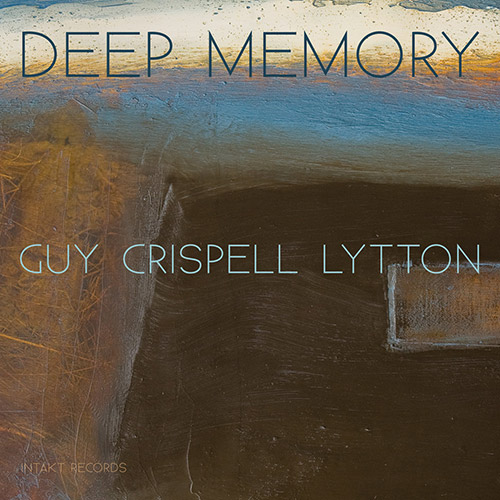

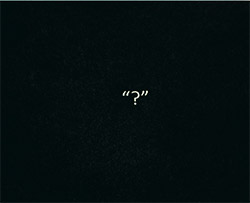
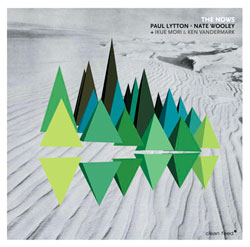
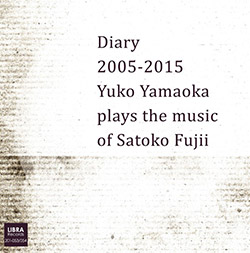





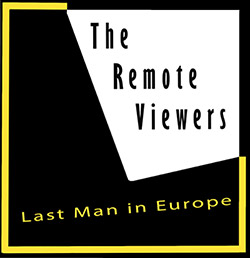
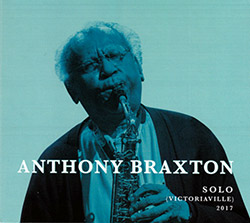








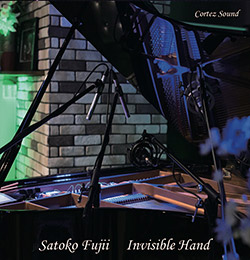
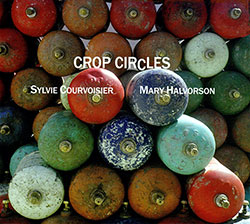
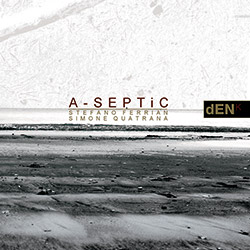



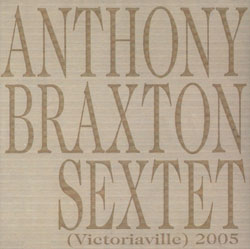


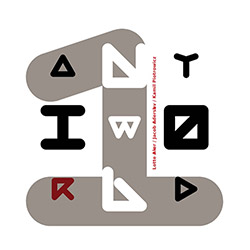
![Tusques, Francois / Sunny Murray 38: Intercommunal Dialogue 1&2 [2LPS w/ DOWNLOAD]](https://www.teuthida.com/productImages/misc4/35475.jpg)
![Birge, Jean-Jacques: Pique-nique Au Labo [2 CDs]](https://www.teuthida.com/productImages/misc4/35596.jpg)

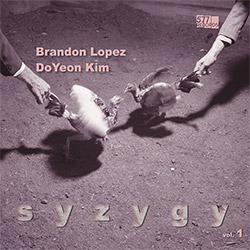
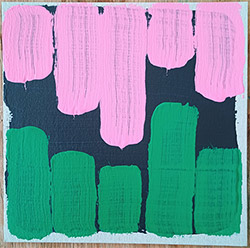



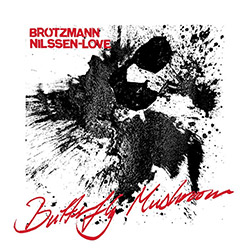
![Brotzmann, Peter / Paal Nilssen-Love: Butterfly Mushroom [VINYL]](https://www.teuthida.com/productImages/misc4/35541.jpg)
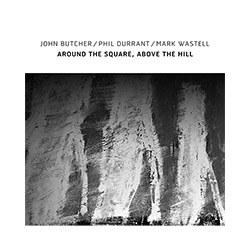
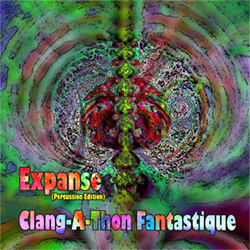
![Allen, Clifford: Singularity Codex: Matthew Shipp On Rogueart [BOOK]](https://www.teuthida.com/productImages/misc4/33454.jpg)


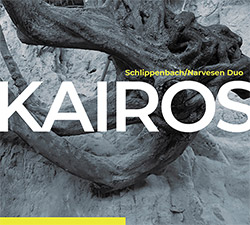

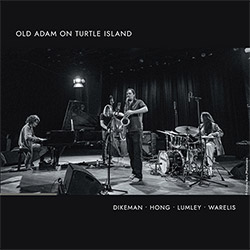
![Sun Ra: Lanquidity (DELUXE EDITION) [VINYL]](https://www.teuthida.com/productImages/misc4/35234.jpg)
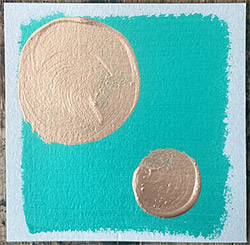
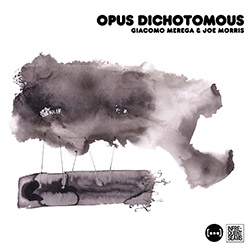
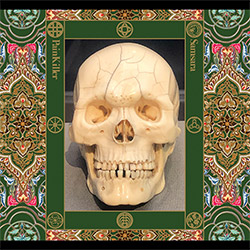
![Sun & Rain (Morgan / Laplante / Smiley / Nazary): Waterfall [VINYL]](https://www.teuthida.com/productImages/misc4/35604.jpg)
![Centazzo, Andrea: Ictus@45 - Out Off Nights [4 CD BOX SET]](https://www.teuthida.com/productImages/misc4/35611.jpg)
![Kaucic, Zlatko (Kaucic / Amado / Dorner / Grom / Guy / Fernandez / Snekkestad): INKLINGS [4 CD BOX SET]](https://www.teuthida.com/productImages/misc4/35614.jpg)
![Fernandez, Agusti feat. Barry Guy, Don Malfon, John Butcher, Jordina Milla, Liudas Mockunas, Lucia Martinez, Torben Snekkestad, Zlatko Kaucic: Agusti Fernandez @70 - Aesthetic Of Prisms. [7 CDs]](https://www.teuthida.com/productImages/misc4/35617.jpg)
![Sarian, Michael / Matthew Putman / Ledian Mola / Federico Ughi: The Sea, The Space, and Egypt, Vol. 1 [VINYL]](https://www.teuthida.com/productImages/misc4/35463.jpg)
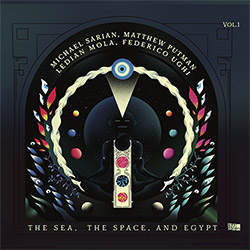
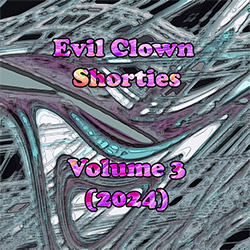
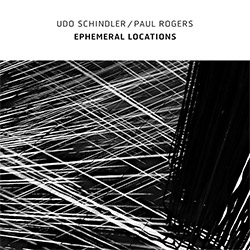
![Berne, Tim (w/ Rainey / Belisle-Chi): Yikes [VINYL]](https://www.teuthida.com/productImages/misc4/35602.jpg)


![Berne, Tim (w/ Tom Rainey / Gregg Belisle-Chi): Yikes Too [2 CDs]](https://www.teuthida.com/productImages/misc4/35601.jpg)

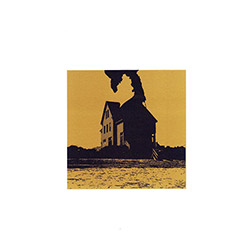
![Brulez les meubles (+ Ingrid Laubrock / Marianne Trudel / Jonathan Huard): FOLIO #5 [VINYL]](https://www.teuthida.com/productImages/misc4/35629.jpg)
![Butcher / Davies / Sanders / Thomas: Unlockings [VINYL]](https://www.teuthida.com/productImages/misc4/35002.jpg)
![Butcher / Davies / Sanders / Thomas: Lower Marsh [VINYL]](https://www.teuthida.com/productImages/misc4/35003.jpg)

![Fagaschinski, Kai / Yan Jun : Graveyard Processions [VINYL w/ DOWNLOAD]](https://www.teuthida.com/productImages/misc4/35474.jpg)
![Brant, Cody / Carl Kruger: Smoke Detail [CASSETTE w/ DOWNLOAD]](https://www.teuthida.com/productImages/misc4/35551.jpg)
![Weirs and Magic Tuber Stringband : The Crozet Tunnel [CASSETTE + DOWNLOAD]](https://www.teuthida.com/productImages/misc4/35570.jpg)
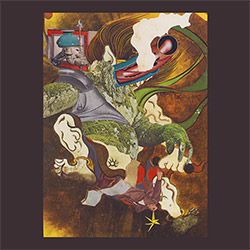
![Abcess Grenk: Erguss Von Licht [CASSETTE w/ DOWNLOAD]](https://www.teuthida.com/productImages/misc4/35560.jpg)

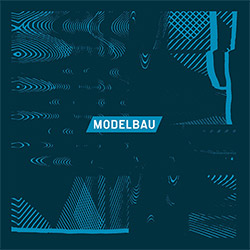
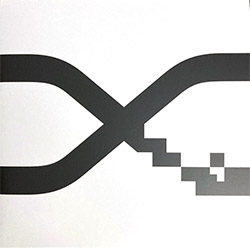
![Alva Noto: Xerrox Vol. 5 [VINYL 2 LPs]](https://www.teuthida.com/productImages/misc4/35359.jpg)
![Weston, Matt: Communism Has Appeared On The Scene [VINYL 2 LPs]](https://www.teuthida.com/productImages/misc4/35546.jpg)

![Jeck, Philip: rpm [2 CDs]](https://www.teuthida.com/productImages/misc4/35455.jpg)






![DNS: Taking Big Bites Of The Khandas Three Cafes Deep [2 CDs]](https://www.teuthida.com/productImages/misc4/35334.jpg)




![Cleaver, Gerald: The Process [VINYL]](https://www.teuthida.com/productImages/misc4/34966.jpg)




![Lonsdale, Eden: Dawnings [2 CDs]](https://www.teuthida.com/productImages/misc4/35480.jpg)







![Sanna, Claudio: Compositori Sardi Contemporanei II [2 CDs]](https://www.teuthida.com/productImages/misc4/35317.jpg)







![Zurria, Manuel: Fame di Vento [3 CDs]](https://www.teuthida.com/productImages/misc4/35167.jpg)

![Granberg, Magnus / Nattens Inbrott / Skogen: Holde Traume, Kehret Wieder! [2 CDs]](https://www.teuthida.com/productImages/misc4/35038.jpg)
![Frey, Jurg: Outermost Melodie [2 CDs]](https://www.teuthida.com/productImages/misc4/35039.jpg)

![Pavone, Jessica: Reverse Bloom [VINYL]](https://www.teuthida.com/productImages/misc4/34895.jpg)




![Modney (Modney / Wooley / Gentile / Roberts / Pluta / Symthe / ...): Ascending Primes [2 CDs]](https://www.teuthida.com/productImages/misc4/34852.jpg)






![Elephant9 : Mythical River [VINYL]](https://www.teuthida.com/productImages/misc4/34624.jpg)



![Elephant9 with Terje Rypdal: Catching Fire [VINYL 2 LPs]](https://www.teuthida.com/productImages/misc4/35355.jpg)
![Deerlady (Obomsawin, Mali / Magdalena Abrego): Greatest Hits [VINYL]](https://www.teuthida.com/productImages/misc4/34876.jpg)




![Haino, Keiji: Black Blues [2 CDs]](https://www.teuthida.com/productImages/misc4/35109.jpg)



![Surplus 1980: Illusion of Consistency [CD]](https://www.teuthida.com/productImages/misc4/35069.jpg)
![Staiano, Moe: Away Towards the Light [VINYL + DOWNLOAD]](https://www.teuthida.com/productImages/misc4/35037.jpg)



![Caveira (Gomes / Sousa / Abras / Ferrandini): Ficar Vivo [VINYL]](https://www.teuthida.com/productImages/misc4/34643.jpg)
![Gregg, J. J. / David Van Auken: Lunar Prairie [CD w/ DOWNLOAD]](https://www.teuthida.com/productImages/misc4/34611.jpg)

![Coultrain: Mundus [VINYL]](https://www.teuthida.com/productImages/misc4/32439.jpg)
![Mattin: Songbook #6 [VINYL]](https://www.teuthida.com/productImages/misc4/27317.jpg)
![Punkappella: Wake Up [7-inch VINYL]](https://www.teuthida.com/productImages/misc4/17519.jpg)
![Residents, The: WARNING: UNiNC.: Live And Experimental Recordings 1971-1972 [VINYL 2 LPs]](https://www.teuthida.com/productImages/misc4/31521.jpg)
![Coley, Byron: Dating Tips for Touring Bands [VINYL]](https://www.teuthida.com/productImages/misc4/17906.jpg)

![Lost Kisses: My Life is Sad & Funny [DVD]](https://www.teuthida.com/productImages/misc4/lostKissesDVD.jpg)